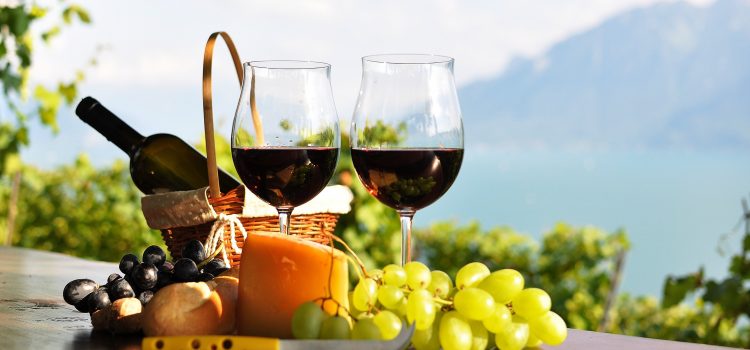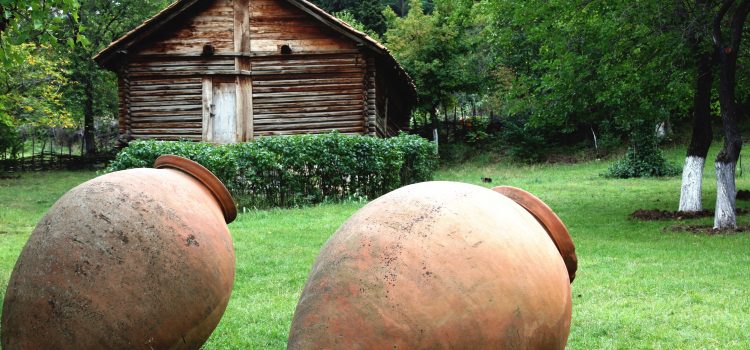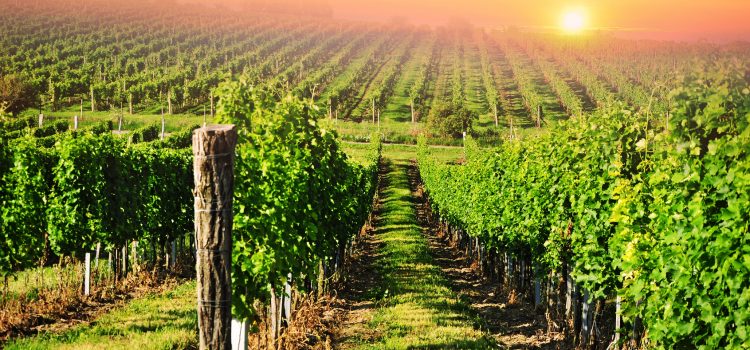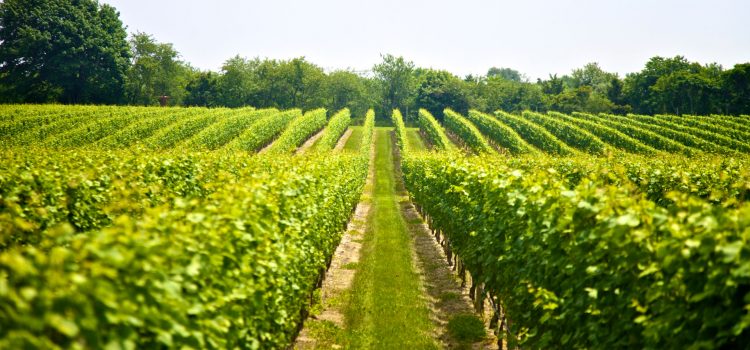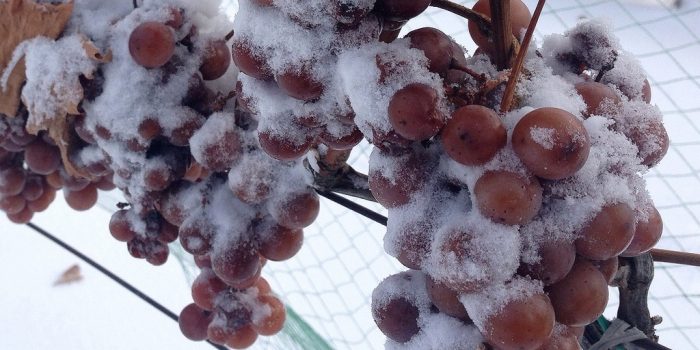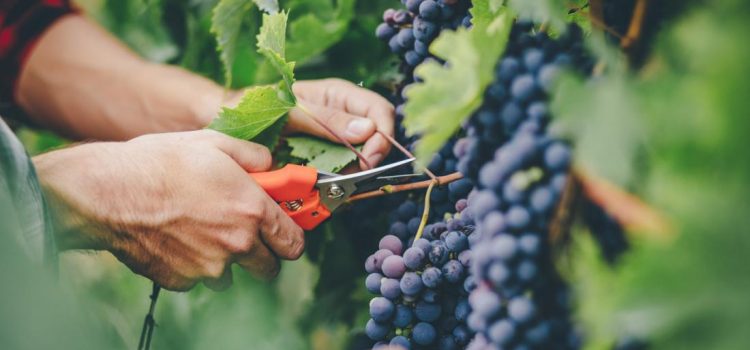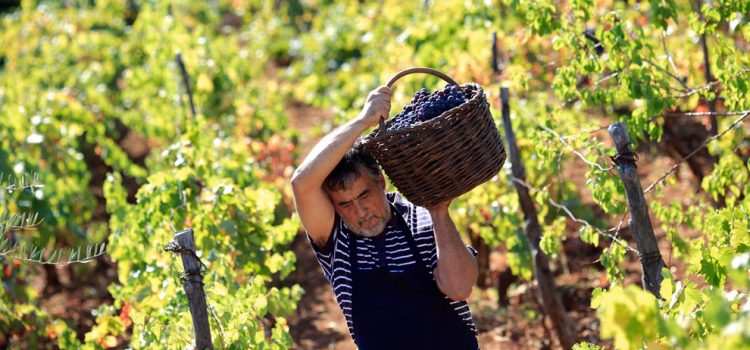Georgia plans to increase wine exports to Japan
Georgian Agriculture Minister Levan Davitashvili and President of Japanese alcoholic drinks consultation company ASIA AC Wataru Iwamoto met yesterday to discuss the prospect of exporting more Georgian wine to the Japanese market.
Wataru Iwamoto stated that Georgian wine is in high demand on the Japanese market after the ‘Georgia – Homeland of Wine’ exhibition was held.
Minister Levan Davitashvili said he hopes the partnership with the Japanese market will be fruitful.
The employees of the Asia AC company will have a two-day tour in Tbilisi and Kakheti region to taste different varieties of Georgian wine.
Source: www.agenda.ge, photo source: www.agenda.ge
Georgian Wine Presented in US Cities
Georgian wine, one of the major parts of the ancient culture of Georgia, has yet another time moved beyond the borders of its homeland. This time, it has been introduced to wider audiences in the USA, in the cities of New York, Chicago and Boston in particular.
At a presentation given by the top-sommelier Taylor Parsons and attended by Georgian wine producers, local entrepreneurs and media representatives, guests were given an opportunity to taste the wine and listen to a seminar on the modern wine industry.
The National Wine Agency of Georgia, the financial supporter of the event, selected the USA as a strategic and promising market for exporting Georgian wine. 354,000 bottles of wine were exported to the USA in the first half of 2019, which is a 90% increase in comparison with the same time period of the last year.
The presentation in the US cities was organized by the contractor marketing company of the National Wine Agency Marq Energie Consulting.
Source: www.georgiatoday.ge; By Ketevan Kvaratskheliya
Image source: National Wine Agency
3rd International Qvevri Competition to Be Held in Georgia
On June 21-22, Georgia is to offer yet another unforgettable journey in the world of wine by holding the 3rd International Qvevri Competition. The two-day event is to host local, as well as foreign, Qvevri producers from and present their wines, which will be tasted and evaluated by a special jury comprising Georgian and international experts.
The major aim of the project is introduce the best Qvevri wines to wider audiences, and to increase their popularity and frequency of consumption globally.
The competition is organized by the Association ‘Georgian Wine’, National Wine Agency and the Ministry of Environment Protection and Agriculture of Georgia. The participants have an opportunity to apply to present their products by June 14.
The 1st Qvevri Wine Competition took place in 2017 in Georgia, much contributing to the augmentation of interest in Qvevri wine.
The Georgian traditional method of winemaking, using the large clay pots “Qvevri” was granted the status of Intangible Cultural Heritage by UNESCO in 2013.
source: www.Georgianjournal.ge; By Ketevan Kvaratskheliya
Photo: Wikipedia
Georgian Wines Evening Held in Italy
Tasting of Georgian Qvevri wines at an event titled “The Beginning of Everything” was offered in Italy in cooperation with the Embassy of Georgia in Italy, the Rome Sommelier Association ‘Divinamente Roma’ and Georgian National Wine Agency (NWA), the Ministry of Foreign Affairs of Georgia reports.
Konstantine Surguladze, Ambassador Extraordinary and Plenipotentiary of Georgia to Italy, addressed the audience with a welcome speech, emphasizing the special cultural significance of Georgian winemaking and speaking about Georgian history, traditions and culture.
At the event, representative of the NWA Giorgi Tevzadze introduced the ancient history of Georgian wine and winemaking technology in Qvevri. Four different kinds of Qvevri wine were presented for tasting. Together with Georgian wines, visitors tasted Qvevri wines made by Italian and Greek winemakers, including ‘Ribola’ by Yosko Gravner, a prominent Italian winemaker and pioneer of Georgian Qvevri and Georgian technology in Europe, which was introduced by his daughter Matteia Gravner.
The event was attended by sommeliers, Italian wine-producing companies and media representatives.
Source:Georgiatoday.ge, By Mariam Merabishvili
Caucasus Wine University to be opened in Gurjaani
In the Kakheti region a new viticulture campus of the Caucasus University is in the process of planning. Although, no details about the opening date have been communicated so far, the Wine University is supposed to offer vocational, bachelor and master programs to students.
Davit Songhulashvili, member of Parliament and Gurjaani Majoritarian said: “The decision on the launch of the wine school in Kakheti region was made by the Caucasus University based on the
study, conducted by the university. I had the same initiative earlier. Our plans coincide with each other and the process was speeded up. Today, the Free University is the only university in Georgia, which involves the agrarian direction and it is located in Tbilisi. Kakheti is the region of viticulture and winemaking and consequently, such a university is very important here. ”
Indeed Gurjaani has a long tradition of wine and viticulture. The small town is located in the fertile Alazani River Plain and is surrounded by vineyards. From Tbilisi, it takes two hours by car, to reach the city in Kakheti.
There has recently been an increased push by the Georgian government to professionalize the national wine industry, particularly to strengthen export possibilities to the European Union and beyond. Although the Georgian wine history is 8,000 years old and 500 out of total 2000 known varieties in the world is Georgian, this direction is not sufficiently cared in terms of professional development, states also the wine industry.
Source: Georgianjournal.ge
Forbes Features “Unique” Georgian Wines
Forbes published an article this week by contributor Lana Bortolot titled ”Why Georgian wines are Among the Most Unique on the Planet”.
Bortolot is a wine, food, and travel reporter who holds the Advanced Wine & Spirits Education Trust certificate and has covered wine regions in more than 16 countries.
In the article, Bortolot explores Georgian wine culture, the role of wine in modern Georgian society, and the technical side of Georgian wine. The piece is peppered with quotes from Georgian wine lovers:
“Even where we think a culture like France or Italy is so wine-centric, Georgians just take it to a whole different level—much deeper than what we’re exposed,” – Taylor Parsons
“There’s something very particular about how Georgians love wine,” he said. “It’s a little eccentric but then you start looking into it and once you do, you’re truly amazed—it’s such an integral part of the culture and everyday life.” – Noel Brockett
“One of the most important things about Georgian wines is that it’s a window into a culture that most of us as Westerners simply don’t have,” – Simon J. Woolf
Bortolot goes on to focus on orange or amber wines, a style growing in popularity worldwide that has long been part of Georgia’s tradition. She also recounts a legend, which said that, in ancient times, “soldiers wove a piece of grapevine into the chain mail protecting their chests, so when they died in battle, a vine sprouted not just from their bodies, but their hearts.”
The article introduces readers to several Georgian wine makers – locals and expats, high end factories and garage operations – celebrating the varied, inclusive culture of Georgian wine.
The article ends with a wine sampler. Bortolot recommends Kisi, Mtsvane, Rkatsiteli, Saperavi, and Tsinandali for beginners.
By Samantha Guthrie, Source: Georgiatoday.ge
Georgia – ideal climate conditions for Icewine
Georgia is widely considered as a cradle of wine. It is the country where the earliest evidence of grape wine-making was found. Telltale chemical signs of wine in the pottery jars, discovered in two Neolithic villages (called Gadachrili Gora and Shulaveris Gora about 50km (30 miles) south of Tbilisi, the capital of Georgia) dates back 5,980 BC. Previously, the earliest evidence of grape wine-making had been found in the Zagros Mountains of Iran and dated to 5,400-5,000 BC.
Icewine is believed to originate from Germany in the 1700s when freezing weather preceded the harvest and still, winemakers pressed the frozen grapes fermenting the juice to a sweet wine. The winemakers were impressed with the result and they decided to continue with the technique. The type of wine gradually evolved into a classical winter wine and spread throughout the world.
Georgia is one of those countries producing and exporting Icewine. The idea of producing Icewine in Georgia was initiated by one of the German consultants working at Marani, the only producer company of the wine in Georgia. Observing climate conditions in Georgia, the consultant was certain that the production would succeed.
Georgia is characterized by warm summers and cold winters that are ideal conditions for Icewine. Grapes are ripened in summer and frozen in winter. In order to make Icewine, Georgian winemakers do not harvest grapes until freezing weather sets in. Then, grapes are left to freeze naturally on the vine. After the water contained in grapes are frozen, the crops are harvested and pressed. What is produced from the frozen grapes is a small amount of sweet juice without any water.
As the amount of juice squeezed out of the frozen grapes is not impressive and a special pressing technology is required, the production of the wine is not massive and the price is quite high. Besides, it is focused on a limited number of consumers who love sweet wine.
Source: Georgianjournal.ge
Evidence of ancient wine found in Georgia a vintage quaffed some 6,000 years BC
Archaeologists are hard at work sifting through the dirt at a dig in Imiri, south-eastern Georgia.
The scientists believe that the site contains artefacts that could once and for all prove that Georgia is the oldest wine producing country in the world.
Eight thousand years ago, during the neolithic era, farming and agriculture were flourishing in the three villages that now make up the Shulaveri – Shumitepe Cultural ruins in Marneuli Valley.
And one of the products being grown and harvested proved to be grapes to make wine.
Stephen Batiuk is from the University of Toronto: “What is significant about this site is that it produced some of the earliest examples of domesticated grapes, which we believe were involved in the earliest production of wine. We know that a wine vessel was discovered in Shulaveri, which also provides evidence of early wine production. But here (Imiri site) wine could be produced even earlier taking wine production in Georgia all the way back to 6,000 BC.”
David Lordkipanidze, is director of Georgia’s National Museum:
“The aim of this project is to look at the history of agriculture. It’s not just only the question of the earliest wine and we have found here traces of very old wine making, but as well to look at the domestication of the weeds, of the different agricultural products, which shows that Caucasus and Georgia were part of this big geographical territory, the so called Fertile Crescent, where the earliest agriculture was appearing and first civilisations were spreading.”
The Fertile Crescent is a swathe of land stretching from upper Egypt to Mesopotamia, modern day Iraq, Kuwait and northeast Syria.
Source: Euronews.com
2018 grape harvest kicks off in Georgia
The 2018 grape harvest is in full swing in Georgia’s wine region of Kakheti. Harvest in Georgia lasts from middle of September till middle of October.
This will be the first grape harvest in the last 10 years that has not been subsidised by the state.
Diversified markets, increased wine exports and the number of enterprises on the market gives firm reasons to believe that the grape harvest will be successful and organised, Georgian Minister of Agriculture Levan Davitashvili says.
A special grape harvest coordination centre opened in Kakheti on August 20.
So far 80 companies have registered in the centre that are ready to get involved in the grape harvest process.
Of these companies 23 wine companies are already involved in the harvest.
About 5,000 tonnes of grapes are predicted to be processed during this harvest.
Here is the tour for Rtveli in Georgia:


